As we celebrate International Women’s Day (IWD), we’re taking the opportunity to shine a light on the incredible achievements of women around the world and to recognise the progress we’ve made towards gender equality in the insurance industry.
At IQUW Group, we believe in creating an inclusive workplace that is welcoming to everyone, regardless of their gender, race, age, or background. We know that ensuring a truly diverse workforce isn’t just the right thing to do, it makes smart business sense too. By bringing together people with different perspectives, experiences and skillsets, we can drive innovation, improve our customer service and build stronger relationships with our partners.
To mark IWD 2023, we sat down with four talented women at IQUW and ERS to learn about their experiences, perspectives, opportunities, and the challenges they face as women in the insurance field. Our discussions covered a range of topics, including gender diversity in the workplace, career development and the changing landscape of the insurance industry.
Through these conversations, we hope to shed light on the progress that has been made in promoting gender equality, but also on the challenges that still exist. We believe that by sharing our stories and experiences, we can inspire others to join us in promoting inclusivity and diversity in the insurance industry and beyond.
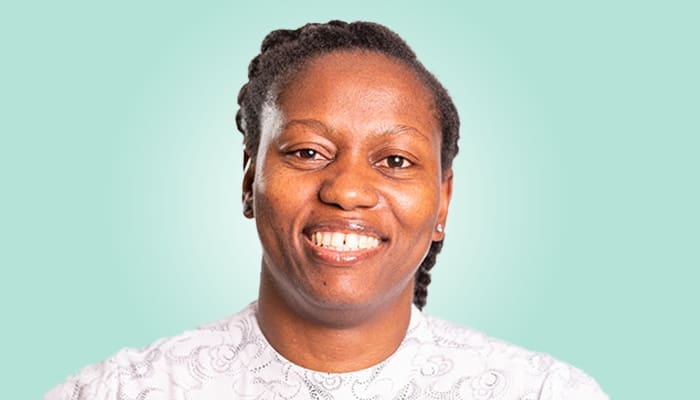
Introducing Ola Bello, Head of Internal Audit at IQUW Group
Hi Ola! Great to speak to you. What is your role at IQUW, and what does your work involve?
Hi there! As the Head of Internal Audits at IQUW, my role is all about making sure we’re protecting the business and working towards the greater good. It’s a job that requires a lot of attention to detail and logical thinking, which I find really stimulating. I work closely with stakeholders in all areas of the business to identify potential risks and find solutions to problems, with the ultimate goal of doing everything can to manage risks and meet our obligations.
What do you think is the most important skill for someone in your role?
While discipline-specific technical skills are crucial for my role, I also believe that soft skills such as collaboration, teamwork and the ability to inspire trust are equally important. I find that when I can collaborate with stakeholders and work towards the same goal, I can do my job better. Authenticity is also important, and I value being empowered to be myself at work.
What changes have you seen in the insurance industry since you’ve been working, specifically regarding gender diversity, and how has IQUW addressed them?
When I first started in the industry in 2005, it was totally dominated by men, and there were very few women in positions of power. For example, when I first attended my first Audit Committee meeting in ERS, there were approximately 10-12 people in attendance with only one woman – our CFO. It was a stark reminder of the lack of gender diversity in the industry.
However, since then, I’ve seen IQUW intentionally placing women in positions where they can challenge the company and affect change – something which I know is characteristic of the industry more broadly too. At IQUW, we also have a dedicated mentoring programme that many women are engaging in, which is fantastic.
What one thing would you like to see change in the future to help women succeed in the insurance industry?
I would like to see mentoring programs introduced sooner in people’s careers to help them recognise their strengths and develop them from an early stage. I believe that mentoring can be a powerful tool to help people realise their potential and make a meaningful impact – and it’s crucial not to leave this essential element too late.
What one thing have you learned throughout your career that you believe is important for women in the insurance industry?
One thing I’ve learned is that it’s important to believe that we’re enough and that our drive, ambition, and the desire to do well are more important than being perfect. Women in the industry can face enormous pressure to conform to certain expectations, but I believe that being true to ourselves and having the confidence to pursue our goals can be incredibly empowering.
Thank you so much for sharing your journey with us, Ola. Your insights and experiences have been truly fascinating and inspiring. It’s clear that your dedication to your role, your colleagues, and the insurance industry as a whole is making a significant impact.
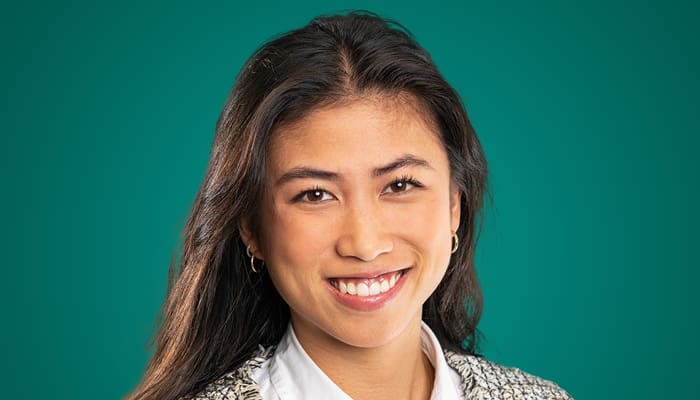
Meet Cindy Jiang, Political Risk Underwriter at IQUW
Hi Cindy – Can you tell us about your current role at IQUW?
Four months ago, I joined IQUW’s political risk team as an underwriter. My role involves servicing clients such as major commercial banks, enterprises and financial institutions, and I’m responsible for mainly providing political risk or contract frustration coverage to new or existing clients. I also work on broker engagement strategies, conduct general risk analysis and monitor on a day-to-day basis the internal book of business which covers a multitude of territories, mainly across emerging markets.
As you might imagine, extensive market knowledge (at a macro and micro level) is essential, and it’s my job to be at the forefront of major events and forthcoming trends across the world. I work closely with political analysts and other experts to inform and shape our approach.
What I love about IQUW is the supportive environment that encourages and motivates me. I think this element is a little-known but essential aspect of the insurance industry – across the board is a collaborative culture where people feel valued, supported and heard. It gives me the time and opportunity to learn and work as part of a collective, and I appreciate the idea that the market works together, including clients, brokers, and other underwriters.
Another great aspect of the industry is that there are so many opportunities, at all levels. Even when I started out, on the graduate scheme, I was able to experience dealing with high-profile clients and complex transactions immediately. I found the experience challenging, but also supportive and rewarding – and I think this characterises the industry as a whole.
What changes have you seen in the insurance industry since you’ve been working?
I’ve always worked in a heavily male-dominated team, and it’s not always easy. But I’ve seen progress being made, and I know that IQUW is actively working towards promoting more women and people from diverse backgrounds to join the industry.
I think the insurance world is generally supportive and wants to push for more diversity, but the reality is that – just as in so many other industries – progress is slow. It’s important to actively and purposefully work to create an environment where people feel they can be themselves and harness and develop their own unique skills, rather than looking at numbers or quotas in isolation. I think it’s important to keep pushing for change.
What more does the industry need to do to drive this change?
Simply, to promote and recognise diversity of thought and background at all levels. Different experiences and perspectives can help to identify new opportunities and challenges, which ultimately benefit the company. I believe hiring processes need to change to purposefully harness a range of different experiences and backgrounds. By doing so, we can continue to push for progress in the industry and ensure that everyone has a voice.
How do you think you can personally play a role in promoting diversity and inclusion in the industry?
I think it’s important that I continue this in my own work by supporting women to have as many experiences as possible and meet people at all levels. I want to help them see that they can excel in the industry and be part of making positive change. While cultural change needs to come from the top, I believe that everyone has a role to play in promoting diversity and inclusion.
Thanks, Cindy. It was fascinating to learn about your experiences and insights. Thank you for sharing your story.
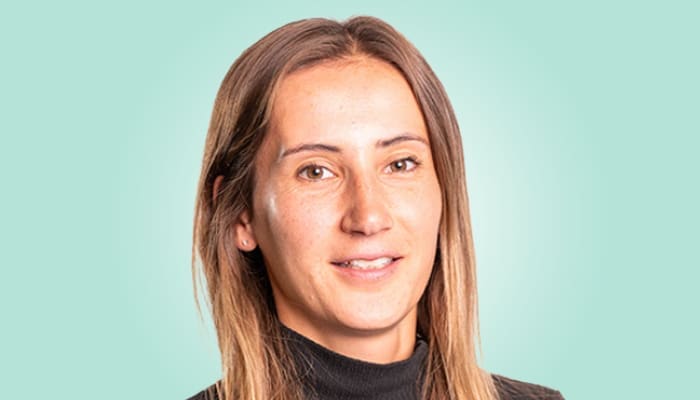
Introducing Tilly Howson Ray, Pricing Actuary at IQUW
Hi Tilly! Happy International Women’s Day. What is your role at IQUW, and what does your work involve?
I joined ERS (the motor syndicate in the IQUW Group) in 2018 as a pricing analyst in the commercial team, where I worked on projects related to heavy goods vehicles and specialist commercial vehicles, before moving to the fleet and agriculture side. A year and a half ago, I moved over to IQUW as part of a new pricing team, which has been a huge opportunity – giving me the chance to work with energy, marine, aviation and cargo underwriters.
As a Pricing Actuary, my main responsibility is to support the underwriters and provide them with the tools to assess the adequacy of premiums for often unique and complex risks. As well as technical skills like data analysis and modelling, I’ve been able to develop and use soft skills like collaboration, communication, critical thinking and much more.
Working closely with the underwriters, I have to understand the nuances of each class of business to provide them with the best possible tools and insights. I enjoy the challenge of finding solutions to complex problems and working collaboratively to achieve our goals. It’s a great feeling to know that my work has a real impact on the company and helps to ensure that we’re providing our clients with the best possible service.
What progress have you seen throughout your career, specifically regarding gender diversity?
I’ve been fortunate to work in a well-balanced pricing team at both ERS and IQUW, where women are empowered to succeed, and I’ve worked with a number of strong and knowledgeable women in Pricing who have inspired me and demonstrated the opportunities available to talented and hard-working people to progress through the ranks.
We also put much emphasis on nurturing early talent. We have seen the real impact that talented women have in the workplace, with their opinions being well-received and having an impact on other people in the room.
What needs to change to develop a more inclusive workplace?
The insurance industry can do more to foster a culture of openness and inclusivity by promoting a wider range of social opportunities that cater to the diverse interests of employees from different backgrounds and teams. This can involve activities that appeal to everyone across the business and build a sense of community internally. Additionally, it’s important to ensure that external social events are inclusive as well.
Furthermore, it’s important to maintain the flexible working policies that were introduced during the COVID-19 pandemic. The rise of remote working has given employees more control over their work-life balance and has enabled them to better manage their personal and professional responsibilities. I believe that this flexibility is a positive change that many people appreciate and value, and it’s great that we’re continuing to promote flexibility.
As a woman working in the insurance industry, have you faced any challenges or obstacles in your career?
Personally, I’ve been fortunate to work in a well-balanced pricing team at ERS and IQUW, which actively works to empower women. It’s so important to have role models and mentors who can help guide and support women as they navigate the industry.
What advice would you give to other women who are interested in pursuing a career in the insurance industry?
My advice would be to find a mentor or role model who can help guide and support you as you navigate the industry. It’s also important to be persistent and to keep pushing yourself to learn and grow. Finally, don’t be afraid to take on new challenges and to step out of your comfort zone. The insurance industry is constantly evolving, and there are always new opportunities to explore.
Thanks so much Tilly, for your insights and experiences – so interesting to hear.
So, as we wrap up our discussions with these incredible talented women in the insurance industry, we’re reminded of the importance of celebrating and empowering women in all areas of business. It’s clear that there is still work to be done to ensure that women have equal opportunities and are given the support they need to succeed. But by continuing to promote diversity and inclusion, and support women, we can work towards a more equitable future for all.
At IQUW, we’re committed to being part of this ongoing effort. We’re proud to be part of an industry that is making progress towards gender equality and we will continue to do our part to support and uplift women in the workplace and beyond.
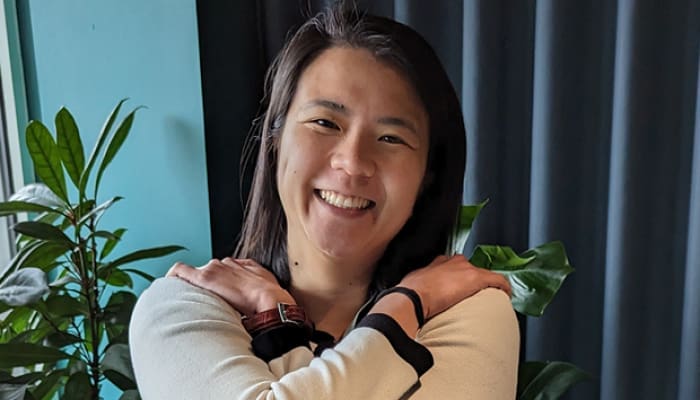
Introducing Hazel Hong, Finance Business Partner at ERS
Hi Hazel, Great to speak to you. What is your role at ERS, and what does your work involve?
As an Underwriting Finance Business Partner at ERS, I work closely with our underwriting team and product managers on various forecasting and budgetary processes.
My role involves looking at key drivers and conduct analysis to evaluate our product performance. I am constantly on the lookout for external factors and challenges that could impact our business, together with challenging and working with stakeholders to ensure we have the right information to propel our operations forward.
With a background from the big four, working with a range of different industries and having a keen client perspective, I joined ERS in October 2021. I’m really passionate about making a positive impact on the insurance industry and helping to drive growth and innovation.
What do you think is the most important skill for someone in your role?
I’ve learned that building and maintaining strong relationships with industry professionals is key to achieving success. While having technical knowledge is undoubtedly essential, soft skills like communication and collaboration are equally critical in this role.
I’m not sure if this is a gender specific trait or not, but my approach is to always be over-prepared and to have high expectations of myself to deliver outstanding results. There’s certainly lots of pressure – some of which we put on ourselves – so self-reflectiveness and realism is also important!
What changes have you seen in the insurance industry since you’ve been working, specifically regarding gender diversity, and how has ERS addressed them?
Having worked in the insurance industry for a decade now, I’ve had the opportunity to observe the changes in gender diversity first-hand. My experience extends across both Singapore and the UK, allowing me to see how different cultures and environments can impact the industry.
While it’s heartening to see that education and training were available for everyone and that hiring was largely merit-based in Singapore, the industry still had a disproportionately high male representation in senior leadership roles.
Thankfully, I have noticed a shift towards greater inclusivity and diversity in both Singapore and the UK. In the UK, I’ve been impressed with the way women are celebrated for their success and how there’s little distinction between genders when it comes to rewarding individuals based on performance.
At ERS, there is a conscious effort to promote inclusivity and make the industry more welcoming for everyone, regardless of their gender. By recognising and celebrating the unique perspectives and contributions that women bring to the table, ERS is working hard to create a more equitable and diverse industry that benefits us all.
What one thing would you like to see change in the future to help women succeed in the insurance industry?
I would like to see an even more open-minded and empowered mentality, across the industry, that promotes inclusivity and recognises the importance of diversity.
For example, women often face immense guilt for taking time off for family obligations, such as caring for their children. It’s important for companies to actively encourage and support their female employees in balancing work and family life. This means creating a culture that recognises and values the importance of both and telling women that it’s okay to take time off and prioritise their family when needed. By doing so, companies can help alleviate some of the pressure and guilt that women often feel and create a more supportive and inclusive work environment.
What one thing have you learned throughout your career that you believe is important for women in the insurance industry?
Simply, the importance of being your authentic self and owning your actions. I believe that women should feel empowered to bring their true selves to work and not feel like they have to conform to a certain mould to succeed. Additionally, companies should recognise the unique contributions that women can make to the industry and work to create opportunities for them to thrive.
Thanks so much Hazel, it’s been so interesting to hear your experiences.
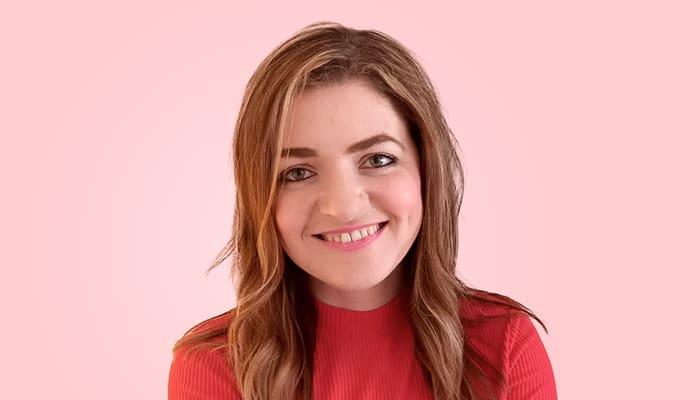
Meet Deniece Maddocks-Davies, Head of Claims Operations at ERS Swansea
Hi Deniece, can you tell us about your background and your current role at ERS?
Hello, lovely to meet you. I’ve been with ERS for eight years now. I started in a tech role and was fortunate enough to have received opportunities for promotion within a short period of time. Today, as the Head of Claims Operations, I manage four operations managers and a wider claims team of 160 people.
Can you talk about your experience with coaching and mentoring?
I have an ILM Level 5 in coaching and mentoring, and I love this side of the business. In fact, I started a women’s networking group outside of work, which is designed to give women from my local area the time and space to discuss the issues which matter most to them.
I find it incredibly rewarding to see individuals grow and flourish under my guidance. At ERS, we have a strong coaching culture that encourages everyone to coach others, even if they don’t report to them. This approach brings different perspectives and creates a sense of inclusivity across the organisation.
Currently, we’re working on a competency framework for our leaders to ensure a consistent approach to coaching and mentoring, as well as to embed our coaching culture into every aspect of our work. I’m excited to be a part of this effort and to continue to support the development of our team members at ERS.
What do you think are the most important skills for someone in your role?
When it comes to my role, I believe that strong communication skills are paramount. Being able to effectively convey information and bring people along on the journey is essential to success. Collaborative skills are also important, as we work closely with various stakeholders across the business.
In addition to communication and collaboration, I believe that strong presentation skills are crucial in my role. As we deal with complex information, it’s important to be able to distil it down and present it in a way that is easily digestible for different audiences. Knowing your audience and tailoring your presentations accordingly is also key.
What changes have you seen in the insurance industry when it comes to gender diversity?
I’ve seen a positive change since I’ve been in the industry. There is now more acknowledgement that we need to act on the lack of female talent in the industry and a more proactive approach. For example, last year we employed a team leader on a part-time basis for the first time. It’s always been a requirement for roles to be full-time, but we were aware that we were likely to miss out on a huge amount of talent by not offering flexibility. The success we’ve had with this approach shows that we need to think about things differently and not indirectly isolate people who have huge talent.
I firmly believe that diversity of perspective is crucial in our industry. To drive this change, we need to take further steps towards inclusivity. At ERS, we’re starting to consider things like job sharing and how we can make it work effectively for everyone involved. Additionally, we need to introduce mentorship schemes, both internal and external, to support our employees and help them reach their full potential. I have been involved in both mentoring and being mentored, and I think it’s important to acknowledge that this isn’t just about gender diversity. We need to address the pipeline issue and support individuals at all stages of their career.
However, it’s not just women who should be involved in mentorship schemes. We need to encourage more men to participate, as this helps to create a more inclusive culture and acknowledges that this is not just a problem for women to solve. By including people outside of the target group, we can provide validation and encouragement that will benefit everyone. Overall, we need to take proactive steps towards inclusivity to ensure that we’re creating a workplace that values diversity and fosters a culture of growth and development.
Thanks so much Deniece, lots of food for thought there.
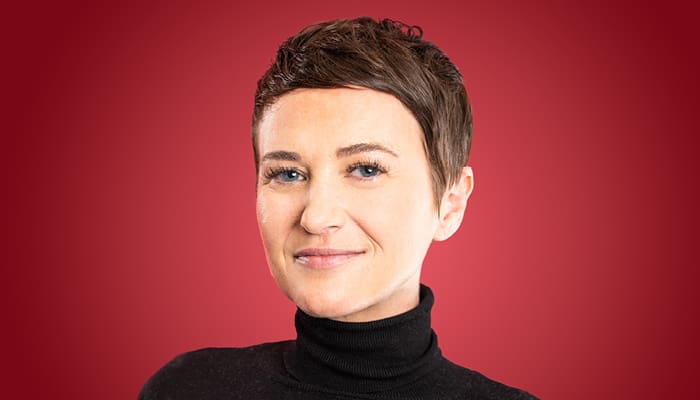
Introducing Claire McShane, Marketing and Events Manager, ERS
Happy International Women’s Day Claire. What is your role at ERS, and what does your work involve?
My role at ERS can be broadly split into two parts – running marketing activities for our specialist fleet business – and more broadly, to engage customers, partners and prospects through external events.
As you’d imagine, a large part of the events side of my role is managing industry events – such as the BIBA Conference & Exhibition, which is the biggest insurance broker event on the UK calendar. From stand design, to organising fringe-events, to booking over 100 broker meetings over a two-day period, this annual event is intense, exciting, and rewarding. And at ERS, we like to bring creativity and innovation to events too – which at BIBA means bringing a fleet of vintage, branded minis to the exhibition to offer delegates free taxi rides across the city of Manchester.
I’ve worked in insurance for more than 20 years, starting my career at a publisher of reinsurance and insurance magazines. As such, I’ve built up extensive experience and a large network of industry contacts which has ultimately given me an encompassing understanding of the market. It’s a complex and ever-changing industry, and at ERS, we pride ourselves on being at the forefront of innovation and customer engagement. My role is to ensure that our Fleet marketing and events strategies stand out in a crowded market, while also helping to build our brand and reputation in the marketplace.
Q: What changes have you seen in the insurance industry since you’ve been working, specifically regarding gender diversity, and how has ERS addressed them?
When I first started working in the insurance industry, I was very aware that it was an incredibly male-dominated industry, often described as a “men’s club,” where women weren’t represented or heard. This was particularly evident at industry events, which were largely male-dominated and often not welcoming to women.
I had to be confident and stand up for myself to ensure that my voice was heard, and my contributions were valued. In those early days, there was immense pressure to prove yourself – as a woman in a male world.
But with new generations coming up, who are setting new standards, the cycle is being broken. There is now more acceptance of different behaviours and attitudes and diversity is valued – not just as the right thing to do but because different perspectives make good business sense. It’s great that ERS is committed to promoting gender diversity in the industry, something which we have a real focus on in events, by inviting a diverse range of speakers, and ensuring delegate groups are more balanced.
Q: As a woman working in the insurance industry, have you faced any challenges or obstacles in your career?
Yes, I have had to work harder to prove myself, especially when it comes to networking and establishing relationships. However, I have also been fortunate to have talented, supportive colleagues and mentors who have helped me navigate these challenges and helped build my confidence. It’s heartening to see a much more inclusive industry today, and we must ensure we build on that good work in the future.
Q: What advice would you give to other women who are interested in pursuing a career in the insurance industry?
My advice to other women who are interested in pursuing a career in the insurance industry is to be confident, believe in yourself, and be prepared to work hard. The industry can be challenging, but it is also rewarding, and there are a lot of opportunities for growth and development. It’s important to establish a strong network of colleagues and mentors who can provide support and guidance along the way. More importantly, choose an employer that champions all genders and backgrounds in terms of career opportunities and development, the options are far greater than they used to be.
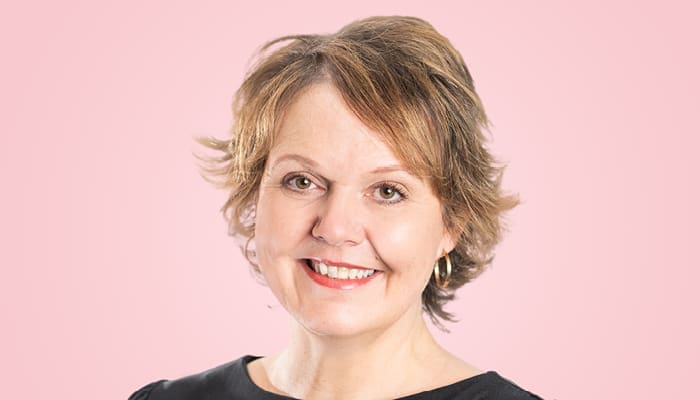
Meet Nicky Harttree, Product Manager for Fleet Own Goods & Trade at ERS
Hi Nicky! What is your role at ERS and what does your work involve?
My 30-year journey through ERS can be broken down into three chapters; I was an underwriter for eight years before leaving to have my eldest son. After a year off, I returned to the role part-time for 14 years so I could also focus on raising my family. In 2014, after returning from an 18-month secondment to develop ICE Policy, I returned to work full-time and was offered the role of Senior Underwriter, before eventually being promoted to my current role in 2018. Today, I work closely alongside our head of class to manage the performance and profitability of five propositions in our fleet book – own goods and trades, self-drive hire, coach (minibus and community transport), taxi and goods for hire and reward.
A significant aspect of my role at ERS involves using data to maintain and enhance our performance. This requires me to keep my finger on the pulse of industry trends and identify opportunities for improvement. Working closely with the underwriters, I ensure that we have a deep understanding of the market and can respond effectively to changing conditions. With 27 people on our team, it’s essential that we work collaboratively and efficiently to execute the underwriting strategy and deliver our business plan.
What changes have you seen in the insurance industry since you’ve been working, specifically regarding gender diversity, and how has ERS addressed them?
30 years ago, insurance was a male-dominated industry, and women were not represented particularly well. Progression was difficult, and women were often offered roles in other areas of the business that were traditionally female-biased, such as administration or people-focused roles. I was the first woman in the organisation to be employed in Fleet underwriting team when I entered the field, and I wanted to learn from my experiences. I faced some challenges and resistance, particularly at the beginning.
Thankfully, things have changed for the better over the years and women don’t have to face some of the same struggles and challenges that existed in the past. The current generation is much more open-minded and progressive, focusing on identifying talent based on merit rather than gender. In this more inclusive environment, opportunities are available for those who seek them, and there is much more diversity in the industry. It’s gratifying to see that performance and experience are now viewed as the most important factors, and people are not judged based on their gender or other personal characteristics.
What advice would you give to someone who wants to be an underwriter, and more generally, what advice would you give to the insurance industry to become more inclusive?
In terms of advice for someone who wants to be an underwriter, it’s important to continue learning and staying up to date with industry trends and developments. This includes taking professional exams and seeking out internal training opportunities. It’s also important to work hard and create opportunities for yourself by being proactive and showing initiative. Building relationships and networking within the industry can also be beneficial.
More generally, for the industry to become more inclusive, it’s important to continue building on the foundations that have been created and to actively seek out and promote diversity and inclusivity. This can include initiatives such as mentoring programs, unconscious bias training, and creating more opportunities for underrepresented groups. It’s also important to recognize and value the contributions of individuals based on their skills and abilities, rather than solely on their gender or other demographic factors.
Thanks so much Nicky, it’s been so interesting to hear about your experiences.
As we conclude our discussions with these exceptional women in the insurance industry, we’re reminded of the importance of celebrating and empowering women in all areas of business. While there has been progress made towards gender equality, it’s clear that there is still much work to be done to ensure that women have equal opportunities and support to succeed in their careers.
By promoting diversity and inclusion, we can work towards creating a more equitable future for all. At ERS, we’re committed to being a part of this ongoing effort. We take pride in being a part of an industry that is making strides towards gender equality, and we will continue to do our part in supporting and uplifting women in the workplace and beyond.



